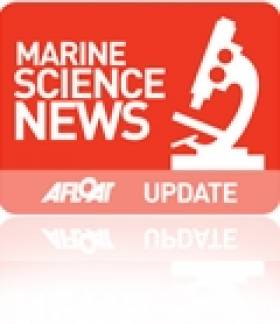Displaying items by tag: QUB
Parental Care by Amphibians Moving Between Water and Land Influences Egg Size, New Study Finds
Parental care by amphibians moving between freshwater and land influences how many eggs they lay, new research by Queen’s University Belfast (QUB) has found.
While most amphibians abandon their young when they lay their eggs, those involved in parental care such as frogs producing spawn adjust the number of eggs and their size to cope with risks such as predators, the study says.
The research has been published in the PLOS Biology journal and was conducted in collaboration with the University of Hull and the University of Reading.
Amphibians are a class of cold-blooded vertebrates such as frogs, toads, salamanders, newts and caecilians — the latter being wormlike animals with poorly developed eyes.
They all move between freshwater and land, hence their name ‘amphibian’, from a Greek word meaning ‘double life’.
The National Wildlife Federation describes them as the most threatened class of animals, being extremely susceptible to environmental threats due to their porous eggs and semi-permeable skin.
Over 40 per cent of amphibians currently face risk of extinction.
The QUB/Hull/Reading research team examined over 800 amphibian species from all over the world, and found that amphibians with direct development and those that lay eggs on land had larger eggs and smaller clutches.
Some form of parental care, and the habitat which eggs and tadpoles develop in, whether aquatic or terrestrial — are two factors which determine the number and size of the eggs that females lay, they concluded.
‘These results have important implications as they demonstrate that considering the diversity in care forms is important’
“Larger eggs are energetically costly to produce for the mother, and so come in small clutches,” they state.
“Because eggs are eaten by many predators, especially if not cared for, females that abandon their eggs typically produce many small eggs.
“However, if the eggs are cared for by either the mother or the father or both parents, mothers change the size and number of eggs they lay. How many eggs and how big females lay depend on the type of care that parents provide.”
The research also looked at the enormous diversity of care forms, which has been “typically ignored” in previous studies, they noted.
“They can protect eggs, tadpoles or juveniles; transport eggs or tadpoles; brood eggs or tadpoles in their vocal sacs, stomachs or in skin pushes on their back; they can feed tadpoles; and some species can give birth to live offspring,” the research team explained.
Dr Isabella Capellini, of QUB’s School of Biological Sciences and lead author of the study, said the work “demonstrates that species such as some Malagasy poison frogs with terrestrial eggs have larger eggs in smaller clutches, but different forms of parental care have different influence on the trade-off between egg size and egg number.
“For example, species that brood their eggs or tadpoles on or inside the body, can only care for few large eggs because the parent’s body has limited room.
“However, those that guard their eggs, can afford to protect larger eggs without reducing clutch size.
“Instead, frogs that feed their larvae have few small eggs, probably because constant feeding after hatching makes producing initially large eggs unnecessary.
“These results have important implications as they demonstrate that considering the diversity in care forms is important.
“Our study suggests that amphibians with diverse forms of care may be under different risk of extinction. We will build upon the knowledge we now have to better understand whether amphibians with diverse forms of care may be under different risk of extinction,” Capellini concluded.
IFI & Queens Share Expertise In Fisheries Research
#MarineScience - Inland Fisheries Ireland (IFI) and Queens University Belfast (QUB) jointly sealed a Memorandum of Understanding (MOU) at QUB’s Medical Biological Centre on Wednesday 11 March, expressing their commitment to a continued rich and productive liaison in research and education.
Over a number of years, scientists from QUB and IFI have worked in collaboration to produce high-quality research covering an extraordinary range of projects, species and topics. Current areas of joint research include fish population genetics, aquatic invasive species and fish telemetry.
Speaking at the announcement, IFI’s head of research Dr Cathal Gallagher said: “IFI and QUB look forward to building on our existing relationship to produce the highest quality research outputs and publications to support the conservation and management on the inland fisheries resource.”
The organisations are also seeking to collaborate in encouraging and supporting the development of the next generation of fisheries scientists and technologists.
Dr Gallagher continued: “I am confident that the memorandum of understanding signed here today will act as an impetus to move forward with future research collaboration to support our shared goals. I see this collaboration as vital in supporting the development and education of the next generation of scientists into whose hands the future of this resource will be placed.
“I’m also extremely impressed by the expertise and quality of the joint research currently being undertaken and I look forward with anticipation to reviewing the outputs of these projects."
Prof Christine Maggs, head of the School of Biological Sciences at QUB also welcomed the announcement. “We are delighted that there is now formal recognition of the long and productive collaboration between QUB and IFI," she said.
“The school’s expertise in fish genetics, fish biology and aquatic ecology has been successfully applied to answering significant research questions for the IFI for more than a decade.”





























































